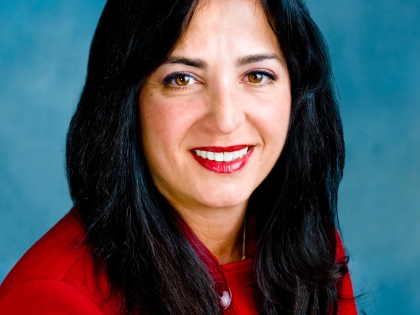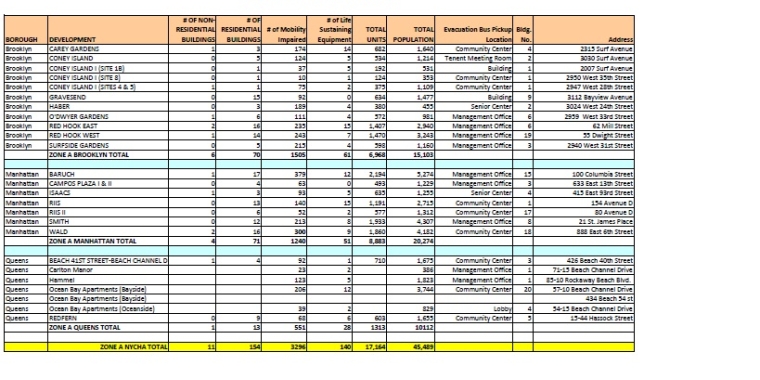
Gym.Tan. Laundry. Discuss.
Consider it an antipasto for tonight’s season finale of MTV’s reality series “Jersey Shore.” The John D. Calandra Italian American Institute at Queens College held a colloquium on “guido culture” Thursday morning to discuss the uproar that has erupted over the show’s depiction of the drinking, hot-tubbing, and brawling summer escapades of eight 20-somethings who proudly refer to themselves as “guidos” and “guidettes.”
Some Italian-Americans consider “guido” to be a slur and have vehemently protested not only the show but also the use of the term. But others, mostly younger Italian-Americans, use it affectionately to refer to a particular life style, no different than preppies, punks, Deadheads, and rappers. Or as the show’s Pauly D put it: “I was born and raised a Guido. It’s just a life style, it’s being Italian, it’s representing, family, friends, tanning, gel, everything.”
Among the overflow crowd of 100 or so people who showed up to discuss the pros and cons were scholars, elected officials, representatives of Italian-American organizations, Italian-American writers, Italy’s deputy consul general and a sprinkling of people who proudly called themselves guidos and guidettes.
The main speakers were Prof. Donald Tricarico, a sociologist and ethnographer from Queensborough Community College, and Johnny DeCarlo, a self-professed Guido, who owns Bonnie & Clyde’s Catering in Lodi, N.J., and auditioned for “Jersey Shore.” Professor Tricarico has studied “guido” culture for nearly 20 years. Wearing wire-rimmed glasses, a sober gray suit and tie, he was the anti-MTV Guido, and visibly uncomfortable lecturing into a microphone before an audience. Yet it was clear that just as Jersey Shore denizens have their own lingo, so do academics — a scholarly version of “Yo, bro” and a fist pump. This “urban youth subculture,” he said, is “associated with late capitalism,” a second generation that “consumes commodified leisure styles,” and has created “a bricolage of symbols.”
In other words, “guidos” are a result of the rising fortunes of young Italian-Americans who, for the first time, had leisure time and money; they tried to carve out a niche for themselves in the popular culture.
As New York State Senator Diane J. Savino, who represents Staten Island and parts of Brooklyn, explained, “ ‘guido’ was never a pejorative.” It grew out of the greaser look and became a way for Italian-Americans who did not fit the standard of beauty to take pride in their own heritage and define cool for themselves.
When she was growing up, everybody listened to rock; girls were supposed to be skinny with straight blonde hair (like Marcia Brady on “The Brady Bunch”); guys wore ripped jeans, sneakers and straggly hair.
The 1977 film “Saturday Night Fever” marked a turning point. “It changed the image for all of us,” Ms. Savino said. As Tony Manero, John Travolta wore a white suit, had slicked short hair, liked disco music and was hot. “It was a way we could develop our own standard of beauty,” she added.
Indeed, Professor Tricarico calls “Saturday Night Fever” the “origin myth” for “guidos.” Think of Tony Manero as Adam.
Young Italian-Americans, he added, did what other minority groups before them have done — take a symbol of derision, own it, and redefine it their own way. Young African-Americans did that with the “n-word,” much to the consternation of their elders, and gays did the same by proudly using the word “queer.”
What Ms. Savino, and pretty much everyone else who spoke, objected to is the way “it’s been exploited by MTV.”
Joseph Sciame, the president of the Italian Heritage & Culture Committee, said the problem was that no matter how many other positive depictions of Italians-Americans there are, “one showing of a program like ‘Jersey Shore,’ and that’s what people think all Italian-Americans are like.” His group as well as others including the New Jersey Italian American Legislative Caucus, Unico National, the Order of the Sons of Italy in America, the National Italian-American Foundation, the Jersey Shore Convention and Visitors Bureau, and the Borough of Seaside Heights, N.J., (where the show was filmed), have protested to MTV.
As another speaker said, “We have a responsibility to make sure people know that’s not us.”
Mr. DeCarlo, who is nearly 29, wore a black shirt, black leather jacket, large gold cross around his neck and a pinky ring, and spiked up his hair with gel. He is a freelance writer but is also interested in acting, so he auditioned for “Jersey Shore” and made it to the finals. He said as the process went along, it became clear that MTV was more interested in “shocking reality TV mayhem instead of a family culture.”
To him, “guido” means family, food, wine cigars, coffee, gold chains, Cadillacs and a dialect that gives “fuhgeddiboutit” some panache. Neither his style, nor his fondness for clubbing and music means that “I’m looking for a fight,” he said.
“A true guido is someone with dreams, aspirations and goals,” he said. Tony Manero “was very flawed but you rooted for him because you knew he wanted to do something with his life.”
The 1992 movie “My Cousin Vinny” is the perfect representation, Mr. DeCarlo said. In the film, Joe Pesci plays Vinny and wears a black leather jacket, big gold chain, speaks in Brooklyn slang and has a “guidette” girlfriend. But it turns out he is very smart and a fantastic lawyer.
During question and answer time, Mario Fratti, a playwright who is probably best known for writing the book for the musical “Nine” (currently a movie with Daniel Day Lewis), got up to speak. He was truly puzzled, he said in his accented English. He pointed out that the protagonist of the Fellini film “8 1/2,” on which the musical “Nine” is based, is named Guido. “I kept the name for the musical and for the movie,” he said. “Keeping the name Guido is a symbol of sophistication. It is a badge of honor in Italy.” How is it that it has become associated with something distasteful?
Later, Mr. Fratti confessed that he had not watched “Jersey Shore.” “MTV — what is that? I’ve never seen it,” he said.
When told he could watch the finale and a talkback with the cast tonight, he slowly shook his head. “You are ruining my life.”
So what do you think? Is “guido” a slur or a lifestyle choice. Should Italian-Americans be proud or embarrassed?
